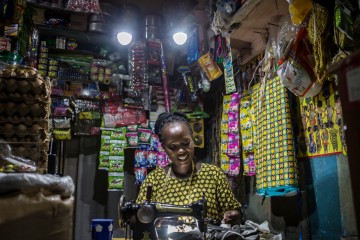- About
- Topics
- Picks
- Audio
- Story
- In-Depth
- Opinion
- News
- Donate
- Signup for our newsletterOur Editors' Best Picks.Send
Read, Debate: Engage.
| August 10, 2020 | |
|---|---|
| topic: | Climate action |
| tags: | #environment, #renewable energy, #eco-tourism |
| located: | Bosnia and Herzegovina, Slovenia, Albania |
| by: | Katarina Panić |
At the end of June, Federal MPs banned the construction of SHPPs in the entire territory of the Federation of Bosnia and Herzegovina. In another Bosnian entity, Republika Srpska, a similar initiative failed a few days later. However, Riverwatch called a moratorium in the half of the country a "historic decision for rivers."
"Some say it would be better if we had a law. Yet, the declaration and conclusion that we got are one step closer to what we have been fighting for so long. It is also easier for us to prevent future wrongdoings now than it was before. Activism can lead to success. One thing is for sure: the environment was the key issue in transforming society from communism towards participatory democracy. It increased awareness among citizens that they have to be asked in making decisions and politicians that they mustn't avoid the will of the citizens," Goran Krivić from Coalition for Sana Protection told FairPlanet.
For more than a decade, Krivić has been involved in the campaign against SHPP Medna near the river Sana springs. Activists used all means available such as legal tools, blockades and public protests.
"We filed 11 complaints to the courts, mostly against the Republika Srpska Ministry of Physical Planning, Construction and Ecology. We've been even before the Republika Srpska Supreme Court. Although most of the decisions were in our favour, we still couldn't prevent the construction. However, we prevented some other dams at the Sana river that were planned. I must emphasise we are not against the investments nor investors, although there were many uncomfortable situations with them. We are against the government which does nothing to save the crystal-clear rivers, to protect the unspoiled nature and to improve the well-being of local people in terms of supporting tourism or community-based eco-tourism," Krivić explained.
He describes how citizens of Fojnica physically prevented diggers from starting the construction of SHPP at Željeznica river. They kept a round-the-clock watch at the site for 325 days in a row. Not only did the digger leave, but the government didn't extend permissions to the rest of the five plants once they expired.
"When we visited them for the very first time, I was astonished by their way to self-organisation. They built a small hut on a forest road. At least one person was there 24/7. If something happens, that person calls three other specific persons, and each of them continues to call another three, without anyone being called twice. In fifteen minutes, you have up to a hundred people gathered at the site who do not allow any works there," Krivić recalled. "However, this guerrilla approach is possible only in the area where people live. Unfortunately, we couldn't apply it in Medna since the region is sparsely populated or it is inhabited with the elderly people mostly."
Electricity consumers pay a fee for renewable energy sources in their electricity bills. NGOs call it dirty rather than clean energy. An open letter to the Energy Community and European Commission, signed by 29 groups and organisations across the country, warns of double standards and calls for revising policies.
"As it stands now, Bosnia and Herzegovina is bound by the contract with the Energy Community to ensure that 40 percent of its energy comes from renewable sources by 2020. By comparison, the target set for Slovenia, a prosperous EU member state, is 25 percent within the same time frame. […] The deficient legal framework, and the incapacitated and inert apparatus of institutional control have combined with the strong links between certain business clans and party elites. […] We see it as our duty to warn the people and states of Europe: The irreparable damage to the natural heritage common to the entire continent is being done, at least in part, due to the partial implementation of the EU green policies. […] their selective implementation is telling us that we remain unimportant peripheral parts of Europe and therefore our environment matters for exploitation only," the letter reads.
Bosnia and Herzegovina, with some three million people and the area just above 51 thousand square kilometres is ranked sixth in Europe for its freshwater resources. It exploits hydropower as it is the only renewable source. Activists appeal switching to solar, wind and citizens energy, but it goes too slow.
"One must know that we are not against the dams a priori; we are and exclusively against the projects without an environmentally friendly flow system. I've been looking for it for years. Unfortunately, I haven't seen a single one so far. On the contrary, I saw the parts of river Ugar where supposedly fish may migrate freely. And yes, they could if only someone installed the elevators for them," Krivić added.
By copying the embed code below, you agree to adhere to our republishing guidelines.

